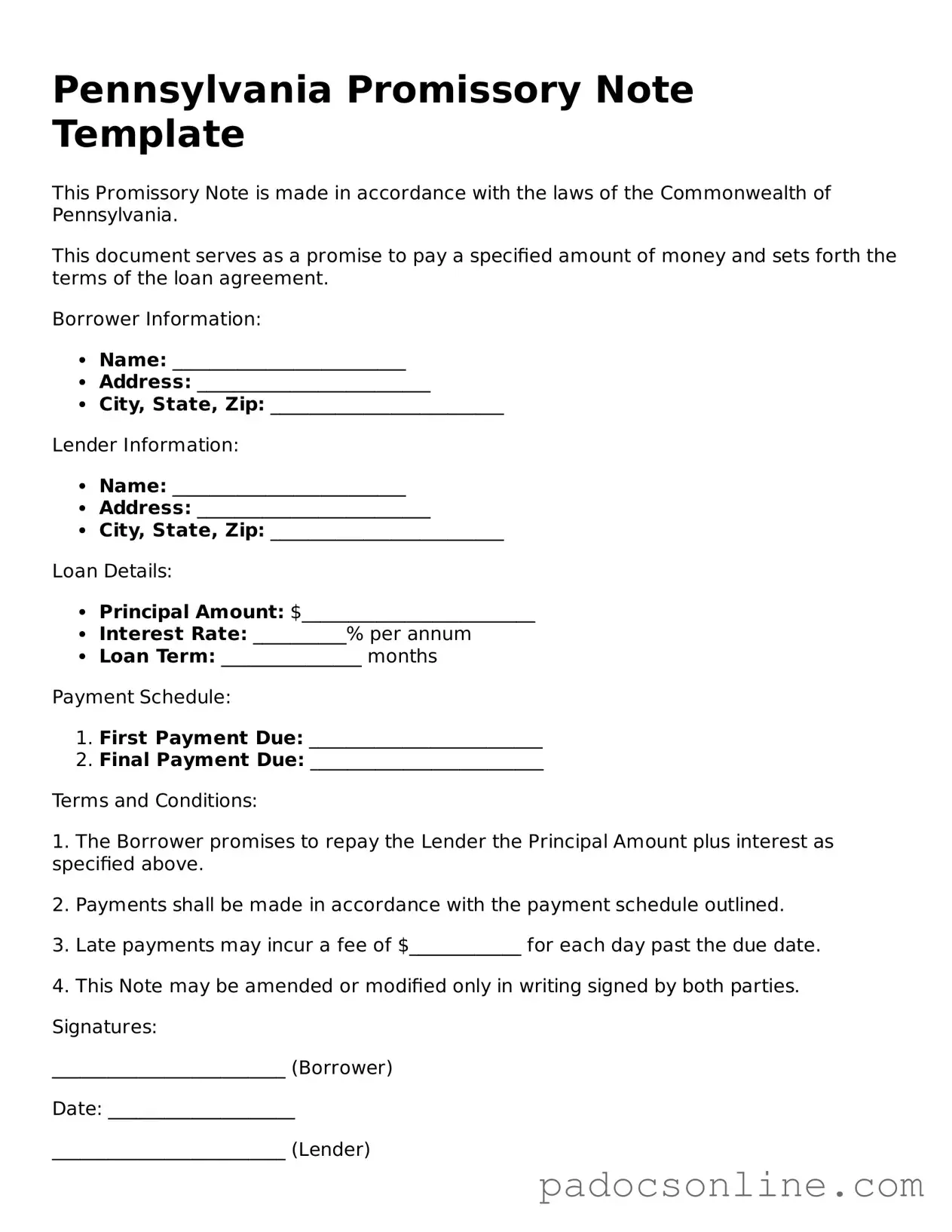When completing the Pennsylvania Promissory Note form, individuals often encounter common pitfalls that can lead to complications. One prevalent mistake is failing to provide accurate personal information. This includes names, addresses, and contact details. Inaccuracies can create confusion and hinder communication between parties involved.
Another frequent error involves the omission of essential terms. The Promissory Note should clearly state the amount borrowed, the interest rate, and the repayment schedule. Neglecting to include any of these details can result in misunderstandings and disputes in the future.
People sometimes overlook the necessity of signatures. Both the borrower and lender must sign the document to validate it. A missing signature can render the note unenforceable, leading to potential legal issues down the line.
Inaccurate calculations of interest can also pose significant problems. Borrowers should ensure that the interest rate is correctly applied to the principal amount. Mistakes in these calculations can lead to incorrect payment amounts, causing frustration for both parties.
Another mistake involves not dating the document properly. The date signifies when the agreement takes effect. Failing to include the date can create ambiguity about when the repayment period begins.
Individuals may also neglect to include provisions for default. It is important to outline what will happen if the borrower fails to make payments. This can protect both parties and provide a clear course of action in case of non-compliance.
Additionally, using vague language can lead to misunderstandings. The terms of the Promissory Note should be clear and concise. Ambiguity can create confusion and disputes over the interpretation of the agreement.
Finally, individuals sometimes forget to keep copies of the completed form. Retaining a copy is crucial for future reference. It ensures that both parties have access to the terms agreed upon, which can be vital in case of disputes.
